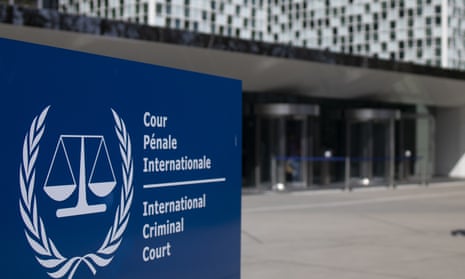The prosecutor of the international criminal court (ICC) in The Hague announced on Wednesday that he had launched an investigation into possible war crimes or crimes against humanity in Ukraine. How likely are Putin or other Russian political or military leaders to be brought to justice and what are the obstacles that must be overcome for that to happen?
What crimes are prosecuted by the ICC?
There are four offences that the ICC prosecutes: war crimes, crimes against humanity, genocide, and the crime of aggression. The ICC’s chief prosecutor, Karim Khan, said there was a reasonable basis to believe that war crimes and crimes against humanity had been committed in Ukraine. War crimes include wilful killing, wilfully causing great suffering, extensive destruction, and appropriation of property, as well as intentionally targeting civilian population or objects. Crimes against humanity include murder “committed as part of a widespread or systematic attack directed against any civilian population”.
Is it a problem that neither Ukraine nor Russia are signatories to the ICC?
Khan said that as Ukraine was not a party to the Rome statute that established the ICC, it could not refer the alleged crimes itself, but it had twice previously accepted the court’s jurisdiction, including when Russia invaded Crimea in 2014, and on the second occasion it had accepted jurisdiction “on an open-ended basis”. So Ukraine cannot refer the alleged crimes itself but the ICC does have jurisdiction over crimes committed on its territory.
Russia withdrew from the ICC in 2016 after the court published a report classifying the Russian annexation of Crimea as an occupation. On the face of it, proving Russia has committed the crime of aggression would appear straightforward. The definition includes invasion of another state, bombardment and blockade of ports. However, if a state is not a party to the ICC, its individuals cannot be prosecuted by the court for this specific offence. The only exception is that the UN security council can refer a non-party to the ICC for the crime of aggression, but Russia, as a permanent member of the council, holds a veto, so this will not happen.
But there is no similar bar that would prevent charges of war crimes, crimes against humanity, and genocide being brought against a non-signatory such as Russia.
How likely is Vladimir Putin or anyone else involved in the invasion of Ukraine to stand trial for war crimes and/or crimes against humanity at the ICC?
It is much more difficult to link a political leader directly to offences committed by armed forces on the grounds – as required for these two offences – than it is to do so for the more overarching offence of crime of aggression. Even if Putin were charged, he would have to be arrested in a state that – unlike Russia – accepts the jurisdiction of the court.
Are there any alternative ways in which Putin or others could be brought to justice?
National courts can prosecute individuals irrespective of their nationality and where an offence has been committed if they have in place so-called universal jurisdiction laws. For example, in January a German court sentenced a Syrian former intelligence officer to life in prison for crimes against humanity committed in the Middle Eastern country’s civil war. In 2015, again in Germany, two Rwandan men accused of leading a rebel group in the eastern Democratic Republic of the Congo were jailed for war crimes. Even Russia has universal jurisdiction laws. However, even if there was an attempt to invoke universal jurisdiction for another head of state, there would still the sizeable obstacle of arresting Putin and bringing him to trial. This would probably require him to be removed from office and then extradited by a new Russian regime with more cordial relations with the international community.
Prof Philippe Sands QC, the director of the UCL Project on International Courts and Tribunals, has called for the creation of a dedicated international criminal tribunal to investigate Putin and his acolytes for the crime of aggression, which he believes is the offence most befitting Russia’s acts in Ukraine.
Ukraine has also taken Russia to the international court of justice (ICJ) for having launched an invasion on the pretext of false claims of genocide perpetrated against the country’s Russian speakers, although this has been described as a symbolic move owing to doubts about its jurisdiction.
